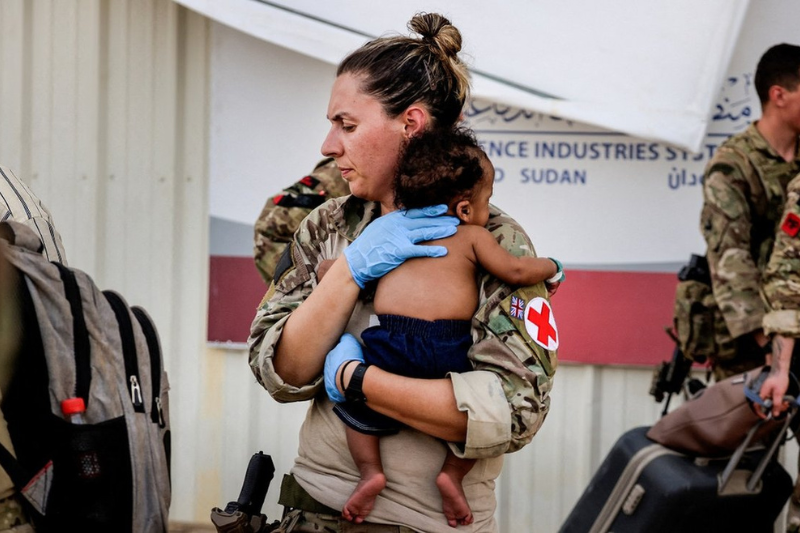
women’s health in danger as uk cuts aid
UK aid cuts in 2023–2024 will increase the number of women who undergo unsafe abortions and the number of women who die during pregnancy and childbirth, according to an internal assessment of the Foreign Office.
The official development assistance (ODA) budget is expected to increase slightly in 2023–2024 and then by 12% in 2024–2025 to reach £8.3 billion, according to the Foreign, Commonwealth and Development Office’s (FCDO) publication of its program allocations for the following two years last month.
ODA spending has not yet returned to pre-2020 levels, when the government temporarily reduced it from 0.7% of gross national income (GNI) to 0.5%, despite projections that show an increase.
Ministers received an equality impact assessment from the FCDO earlier this year to help them decide where to make significant budget cuts for 2023–24.
The assessment, which the International Development Committee provided to and published, provided several examples illustrating the potential effects on protected characteristics groups due to reductions in spending on programs that specifically target marginalized and vulnerable groups.
It specifically emphasized the negative effects on women’s health and well-being, which can result in unsafe abortions and maternal deaths.
“Due to the scale of the ODA reductions (76%) in Afghanistan, the FCDO will not be able to support critical services for women and girls,” it stated about women and girls there.
The Taliban has placed restrictions on women and girls ever since they regained power, denying them access to their human rights and routinely removing them from public places.
Therefore, cutting funding could deprive some of the world’s most vulnerable women and girls of necessary services.
Regarding Pan Africa’s sexual and reproductive health rights, it was stated that spending cuts to the women’s integrated sexual health program would result in results for women and girls being reduced by about 60%.
The number of “couple years of protection” will go down from almost 3 million to about 1.1 million. The number of unsafe abortions that won’t happen will go down from almost 300,000 to about 115,000, and the number of maternal deaths that won’t happen will go down from 2,531 to just over 1,000.
The report went on to say that 500,000 Yemeni women and children will not be able to get health care, and fewer people will die from things that could have been prevented. If other donors can’t give money, Yemen’s health systems could be hurt in the long run.
Keep Reading
According to the assessment, violence against women and girls in South Sudan and Somalia won’t get the attention it needs, and girls’ education in Ethiopia will also be compromised.
Additionally, cuts to efforts to include people with disabilities, people of faith, and LGBTQ+ people will have an impact on vulnerable groups, limiting their access to better learning environments, healthcare, and support services.
The Foreign Office minister Andrew Mitchell stated in a letter to the Labour chair of the International Development Committee, Sarah Champion, that the report had been “a key component of allocation decision-making.”
A paper detailing the changes made in response to equality concerns and to “ensure support reached the most vulnerable” was also included by Mitchell.
According to the paper, due to a lack of funding, not all effects of inequality could be mitigated; however, FCDO ministers made adjustments using in-year underspends and other resources found by officials. These adjustments included the following 23–24 funding increases aimed at assisting the most vulnerable and people who had a relevant protected characteristic.
The funding increases included an increase in Yemen’s 2023–24 allocation by £32 million, to £87 million, for the humanitarian response, as well as an increase in Afghanistan’s 2023–34 allocation of £41 million, to £100 million, to allow the continuation of humanitarian and women and girls’ programs.
While providing £12 million to central humanitarian and health programs focusing on sexual and reproductive health and rights, and £21 million to non-governmental organizations supporting the most vulnerable, the allocations for Somalia and Syria both increased by £30 million each to £90 million.
According to Champion, the FCDO won’t provide crucial assistance to combat malnutrition. There will be cuts to programs that help those who are most in need, such as women, girls, and people with disabilities. Thousands of women will die during pregnancy and childbirth, and hundreds of thousands more will have unsafe abortions.
The UK’s position as a global and regional leader will suffer further political damage. It is hard to see how the terrible results described here fit in with the FCDO’s recent promise to convince more of our fellow citizens that international development is both in our national interest and the right thing to do. Officials must have felt like they had no choice but to make these decisions.
The protected characteristics individuals who, in FCDO’s opinion, have taken the brunt of these cuts must receive the promised increases in the planned allocations for 2024–25.
According to a Foreign Office spokesperson, UK aid spending will rise to £8.3 billion next year and will be concentrated on initiatives addressing humanitarian crises, safeguarding women and girls, and assisting the world’s most vulnerable while providing taxpayers with value for money.
To meet our savings goal, the budget for low-income nations has had to be cut; however, the following year, it is expected to nearly double for these nations, including in Africa, where aid will increase from £646 million to £1.364 billion.









